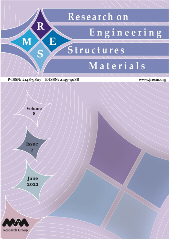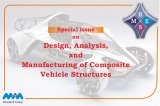Research Article
Numerical investigation of the combined effects of coating layer properties and specific heat capacities of materials on the heat transfer mechanism in solidification of pure metals
Mehmet Hakan Demir
Department of Mechatronics Engineering, Iskenderun Technical University, Hatay, Turkey
Department of Mechanical and Industrial Engineering, University of Illinois at Chicago, Chicago, IL, USA
Keywords
Abstract
Solidification;
Pure metal;
Casting;
Phase-change;
Heat transfer;
Finite difference;
Growth instability
Mold coating has a critical importance to adjust the microstructure of the cast and regulate the heat transfer during the solidification. The phase change heat transfer problem during the solidification is solved numerically in the presence of the coating layer and finite thermal capacitances of materials. Previous studies have been expanded by considering the combined effects of the coating layer and specific heat capacities of the materials on growth instability. Also, the conditions are specified based on the process parameters for minimizing or eliminating the unstable growth of the shell. The complexness of the two-dimensional thermal problem is reduced by perturbation analysis. After that, the governing equations are solved numerically by using the variable time step and grid size based Lagrangian finite difference scheme. The effects of the thermal properties of the materials, coating properties and the thermal contact resistances on the thermoelastic instability process are studied in detail. According to the results obtained that a thicker coating layer causes more regular growing and better quality in the shell. However, the specific heats of the solidified layer and coating materials have stabilizing effects but an increase in the mold specific heat leads to a destabilizing effect on the thermoelastic instability. Also, the thermal conductivities have great impact on growth of the shell. The solution of this study can be used as thermal part in uncoupled and coupled problems in which the thermomechanical problems are investigated.
© 2022 MIM Research Group. All rights reserved.

